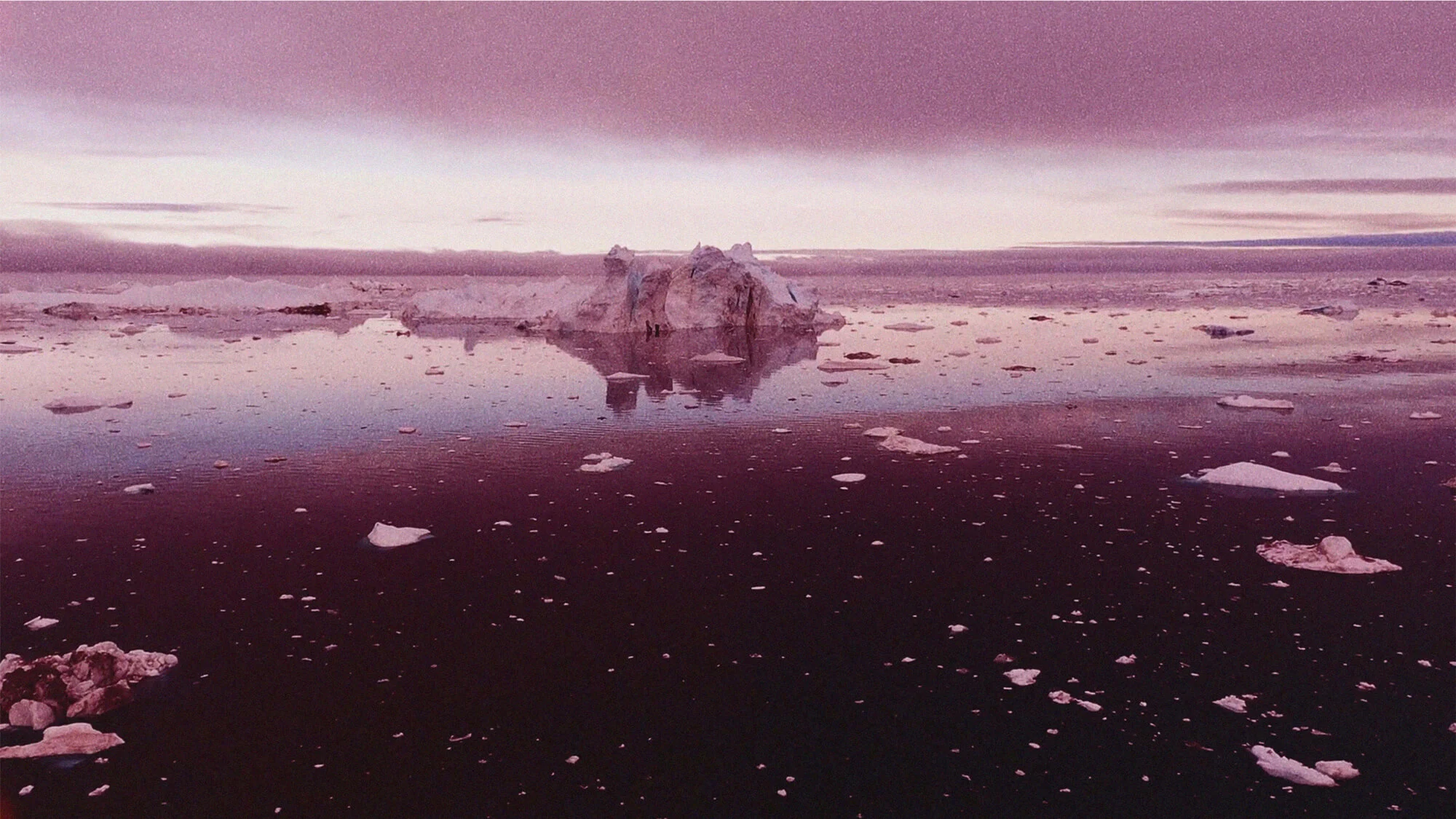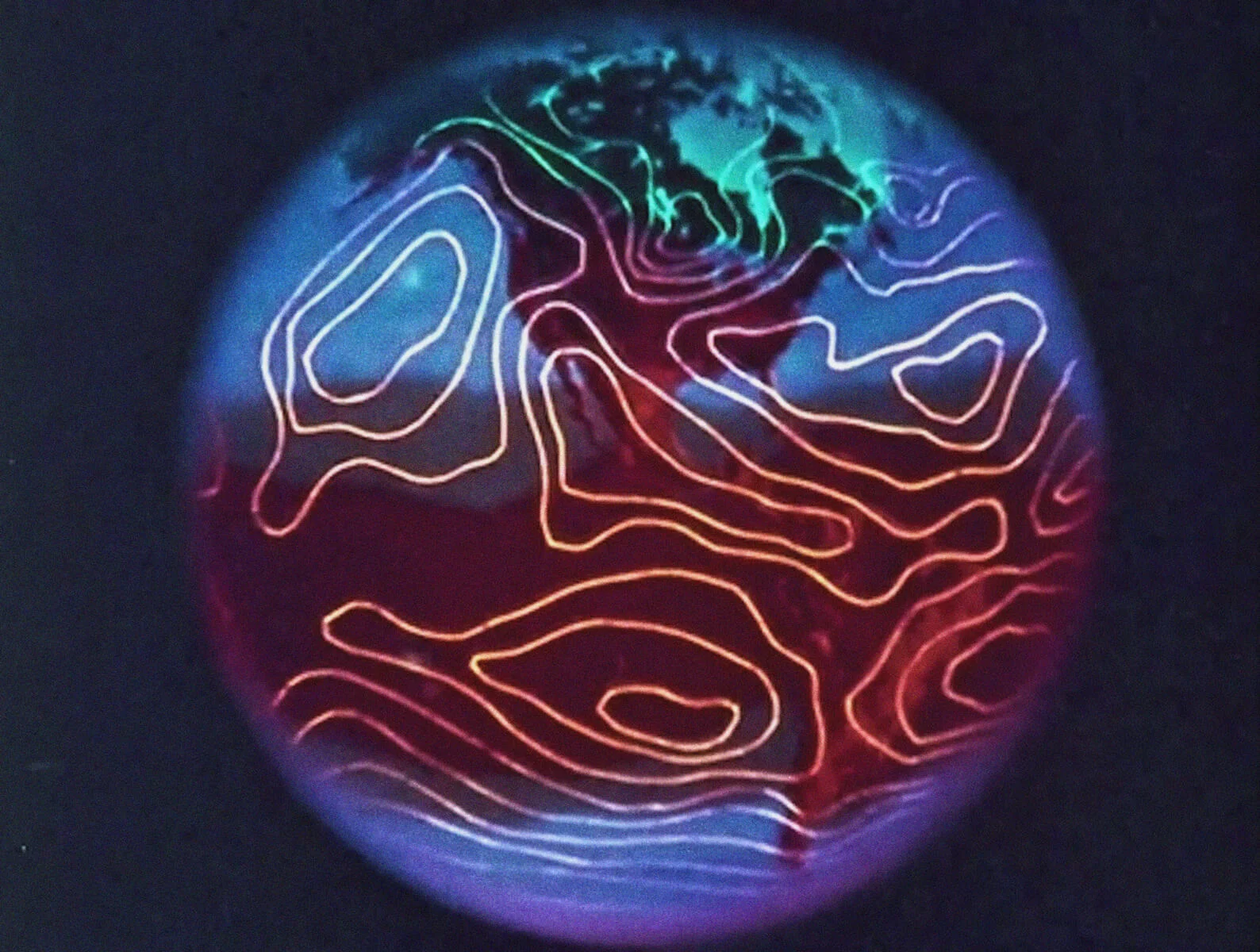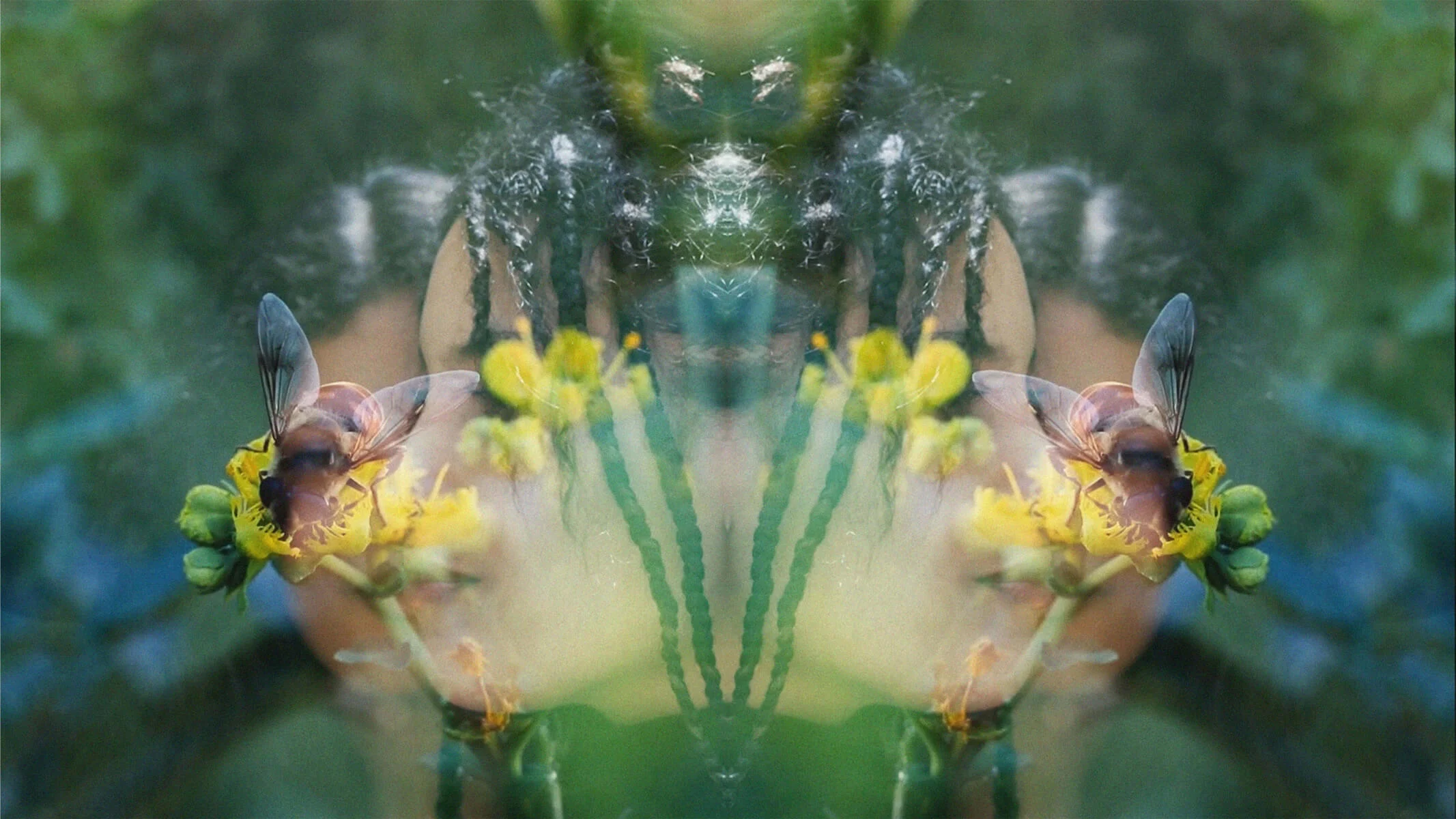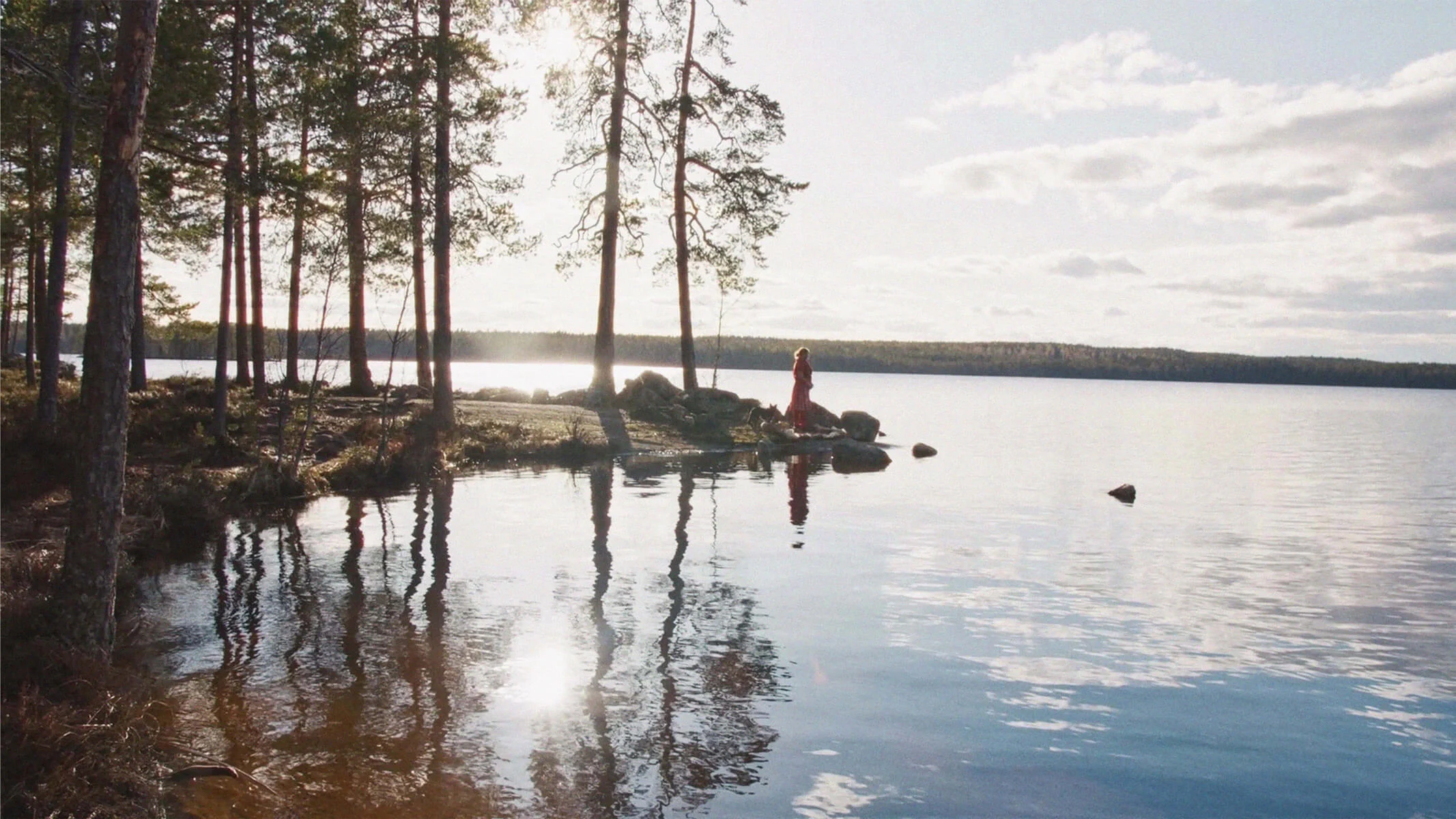


Inside Maggie Baird’s climate change activation
This month WeTransfer is partnering with Overheated, an activation centered around climate change held at The O2 presented by Billie Eilish, Support + Feed (a food and climate justice nonprofit founded by Billie’s mom Maggie Baird), and REVERB. Overheated will take place during the six days of Billie’s “Happier Than Ever” world tour and will include climate-focused panel discussions, a documentary (which you can watch below) and other climate change-related activities. Here, writer Hannah Ewens speaks to Maggie about climate anxiety, optimism, and the myth of the model activist.
When Maggie Baird was born in western Colorado in 1959, she didn’t hear anyone use the phrase “climate change.” It would be decades before scientists knew with 95 percent certainty that we have been the dominant cause of global warming since the 1950s. Weekends with her outdoors-loving family were spent hiking the mountainous landscape of Western Colorado under clear skies, and floating on crystal blue rivers. And yet Baird had a sense that the environment was under threat from early on.
“I remember going to California on a family trip and the air was horrible, and that was very much in my consciousness,” Baird says from her longtime family home in Highland Park, Los Angeles. “I just thought we could potentially live in this horrible world with smoggy air and no mountains to go see. That was my fear.”
It’s the consciousness that will make a difference rather than the perfection.
As a child, during a gas shortage, Baird learned to turn off every light upon leaving a room (she still can’t walk by a light in her home and not turn it off); and as a teenager, she became a vegetarian, though her parents were reluctant to back her decision. After she had her two children, Finneas and Billie Eilish, at the turn of the millennium, her sense of personal accountability to the planet only deepened.
“When you have children you feel this enormous responsibility in every single way. That's what parenting is,” she says. “But particularly when it comes to the planet, you're like, ‘Oh my gosh, what have we brought them into? What can we do to make it better?’

Anything you change in your life will influence other people and will influence the markets.
From the time they were born, Baird raised her children on a vegetarian diet that was good for both their bodies and the environment. She believes choices like these instilled the belief that their own individual actions positively impacted the world around them.
“If there's something that you have deemed in your life is not the right thing to do morally, ethically, scientifically, it just would seem crazy to me to have your children do that,” she says. (Today, both she and Billie are vegan.)
In her children’s lifetimes, Baird says she’s witnessed a loss of public naivety when it comes to climate change and the future of the planet. “I think there’s some kind of trust when you’re young that, ‘Oh, the adults will take care of this. The government will fix this.’ And then you go, ‘Oh wow. Not happening.’”
This realization that “the adults” are not coming to save us, and that global corporations and governments are continuing to put profit over the future of our world, seems to have hit her children’s generation—Generation Z—especially hard. A lack of trust in institutions and those in power has contributed to a prevailing climate anxiety.
There’s some kind of trust when you’re young that, ‘Oh, the adults will take care of this. The government will fix this.’ And then you go, ‘Oh wow. Not happening.
“I noticed a general anxiety in young people. And then you realize, ‘Well, what is the world they're living in?’” she says. “It’s the unpredictability… how are we going to cope? Is it going to affect me personally? Is it going to affect how I live my life out in the world? Is my house going to be blown away? You see things on the news—how can you not worry that they’re going to happen to you?”
Maggie observed Billie talking about climate change with more frequency and then, after watching a David Attenborough documentary, her daughter became fully engaged with the topic. It was this moment that encouraged Billie to see the world in a way she hadn’t seen before, spurring her imagination to contemplate a bigger picture, far beyond her home in LA.
Since then, Baird says Billie has been engaging with the subject of climate change much more frequently, with the two of them becoming increasingly concerned about the environmental impact of touring. Up to 42 percent of the carbon footprint of a tour traces back to band and audience travel alone; and the power needed put on each show and the single-use plastic used at each venue only makes things worse. To combat this, Baird says, Billie’s team have sought out solutions to make her tour not only carbon neutral, but carbon positive.

A lot of anxiety comes at a moment when you have a major opportunity in front of you.
Ahead of Billie’s June shows at London’s O2 arena, a couple of members of her team suggested using the venue as a site to share the sustainability lessons they picked up during this tour and to learn more from other experts and activists. This was the kernel of inspiration for Overheated, a six-day event with talks, performances and screenings of a new documentary short, featuring Billie and Finneas alongside girl in red, Yungblud, climate activist Tori Tsui and Baird herself, among others.
Guests will be on-hand to speak to attendees from the music industry about best practices, future solutions, and efforts currently being taken to be more environmentally friendly. Simultaneously, the weekend will provide information to Billie’s fans about climate change and potential lifestyle adjustments they could make to reduce their carbon footprint.
It’s easy to dismiss the usefulness of climate information. After all, many of us have been brought up on the basics of sustainable living—recycling, walking where possible, avoiding the purchase of fast fashion. But there are always further steps to be taken that aren’t common knowledge, and it can be empowering to be reminded that our actions matter.
Also, not everyone has equal access to this information or the freedom to act on it—a reality Baird is well aware of. “Depending on the situation of their family, [people] may not have had the privilege or the luxury to be even thinking of [climate change],” she says. “Sometimes the people who are most affected by climate change are so busy working that they don't even have the bandwidth to make any lifestyle changes. So [at Overheated], young people have the opportunity to learn about it and share with their own parents and family, and bring ideas and maybe ease the burden for generations that have had to just work hard.”

Through Overheated, Baird is keen to dispel the idea of the “perfect activist.” Instead, she wants to share with attendees that activism is both about making consistent behavioral changes that become second nature—perhaps around diet or specific purchasing habits—and assessing day-to-day decisions as they arise. For example, if you need to fly somewhere, you might make the choice to mostly stay home and walk to local friends and shops for the following week or two.
“It’s the consciousness that will make a difference rather than the perfection,” Baird says. “The constant barraging people with guilt and [making them feel] that they’re not doing enough—that’s detrimental because that discourages people from doing anything. You see it in the world of celebrity. You’re afraid to say, ‘Well, I did this’ because people will go, ‘But you didn't do this.’” Crucially, Baird believes that, to survive, we all must harness optimism. The current era of fear and inaction serves no one—especially not the young people who stand to witness the worst of the latter stages of climate change.

When you have children you feel this enormous responsibility in every single way.
The fact that we need corporations and governments to make huge, concrete commitments to help stop climate change can be paralyzing, and lead people to feel there’s no point trying to help. But it’s worth considering the ripple effect of an individual action: it has the potential to inspire others to follow suit, and to spread hope to young people around you. “Anything you change in your life will influence other people and will influence the markets,” Baird says.
“You’re living at this make or break moment,” she adds. “It’s terrifying and scary, but it’s exciting. A lot of anxiety comes at a moment when you have a major opportunity in front of you.” As Baird—and countless other activists in the news everyday—explain, we want to be able to look back at this critical moment with pride, knowing we did everything we could as individuals to save our precious world.
